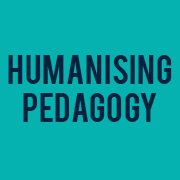
HUMANISING PEDAGOGY
A humanising pedagogy intentionally emphasises the importance of recognizing and respecting each person’s humanity and contextual prior knowledge and understanding. It promotes awareness and action regarding social justice issues, whilst creating a teaching and learning environment that allows individuals to fully realise their potential and feel empowered by the knowledge they acquire to make change in themselves and the world. LEARN MORE

9INE DEIJ TOOLKIT: FREE FOR ECIS MEMBERS
9ine’s International School Risk Framework now includes a new DEIJ risk category to help your school identify and mitigate risks, as you create an inclusive and supportive educational environment. Developed in collaboration with ECIS, it offers pre-defined risk categories, helps schools foster meaningful conversations, and aids in proactive risk management, all within a centralised platform.
100 DEIJ BOOKS
Have a look at our list of 100 DEIJ-related books, as provided by our members and followers on LinkedIn. View/download the PDF here
Podcasts
The Global Chatter
THE BLACK EXPAT
A conversational podcast on international mobility, identity, race, career and more.
Be A Better Ally Podcast
ALLEYED.ORG
Engaging educators everywhere with thinking that builds more LGBTQ+ inclusive schools.
Articles
Recommended Reading For Educators
These come from a list helpfully compiled at www.edgilityconsuting.com as well as from recommendations from peer educators. You can also see/download our 100 recommended DEIJ-related books (PDF)
Shorter Reads/Videos
Embedding DEI Roles Into Your School: A How-To Guide
By now, many (we are hopeful that it’s a majority!) of us will have realised the need to extend DEIJ activity into our schools at multiple levels, whether through work on our curriculum, our staff training, our use of language or our choices about which voices and traditions are amplified in our communities. One massive part of the work is centered around hiring and retention practices, not just at teacher and administrator level but across multiple roles in any given context.
Kevin Glass, Head of Atlanta International School, has shared his team’s focus and job descriptions with us, showing how to stage a multi-level and multi-pronged approach that encourages DEI synergies across a larger school with both primary and secondary sections. Kevin’s approach is a useful guide for how a Head of E&I role on the AIS senior leadership team ensures that the DEI umbrella of work is embedded just as a role in Teaching and Learning, or Finance, might be. Our sincere thanks to Kevin for this intentional and important work.
At AIS, they have three full-time Equity and Inclusion professionals working with students, teachers, administrators, board, alumni association and families.
1 FTE = Head of Equity and Inclusion–a member of our Senior Leadership Team reporting directly to the Head of School. Our Head of E & I co-chairs our Board E & I Committee and also serves on the school’s Education Council (academic leaders) as well as liaison with our Parent Organisation Executive Board.
2 FTEs = Equity and Inclusion Coordinators (one based in Primary School and one in Secondary school). They are direct reports for our Head of Equity and Inclusion and have a dotted reported line to our Heads of Primary and Secondary Schools and their respective leadership teams.
The following two job descriptions are attached:
If you need support, more information, or help in bidding for roles like this in your own setting, you are welcome to contact our DEIJ team for more information and supporting materials. We can help you to make a case, pitch for budget and give you tangible examples of outcomes within our school communities. Contact us in confidence at deij@ecis.org
Policy Template For Schools
Diversity, Equity, Inclusion and Justice Policy Template For Schools
Authored by Kyra Kellawan, Jim Ellis and Kam Chohan, inspired by the DEIJ school statement by Nicole Roady and Kelly Barlow @ The Pegasus School, California.
This version is intended to be available to member and non member schools alike, for free, to bring DEIJ work to the fore or support existing intentions.
About you
You may be a school leader or senior leadership team member with a similar vision to ours. Or, you may have been tasked with leading this work at your school without a full understanding of how to begin. Either way, we are here to help. Below you can find a template policy that can be adapted to the particular needs of your own educational setting.
Aims and Objectives of this Policy
- To create terms of reference and definitions for a community to understand the necessary process of self-study, reflection and commitment to action
- To ensure the protection from harm, safeguarding and psychological safety of each member of the school community, including staff
- To understand and acknowledge the power, privilege and responsibility that comes from being members of any dominant group in a given society
- To enable the fulfilment of the school’s mission in a space of tolerance, open-mindedness, understanding and curiosity about different perspectives and experiences
- To light a path for others and lead by example
SEL: Social & Emotional Learning
Envisioning school-wide SEL (Walkthrough protocol)
In this abbreviated tool, look for signs of high-quality schoolwide SEL implementation by observing for the indicators of schoolwide SEL. (Credit: Kelli Holm, CASEL)
SEL in the Classroom Self-Assessment
This tool can be used to assess strengths and areas to develop for promoting SEL through explicit instruction, integration into academic instruction, and a supportive classroom climate. (Credit: Kelli Holm, CASEL)
Develop a Shared Vision for Schoolwide SEL
This tool provides a model for structuring a conversation about developing a shared vision for SEL or integrating SEL into your school’s existing shared vision.
(Credit: Kelli Holm, CASEL)
Call for submissions: Can we support your work?
We are looking for articles, blogs, teaching and learning resources, multimedia and stories of your experiences to help us communicate our shared mission and inspire ongoing work in our member institutions. If you have experiences you would like to communicate with us, can contribute learnings of your own or have classroom teachings you would like to share with our community, please get in touch with us at deij@ecis.org.




